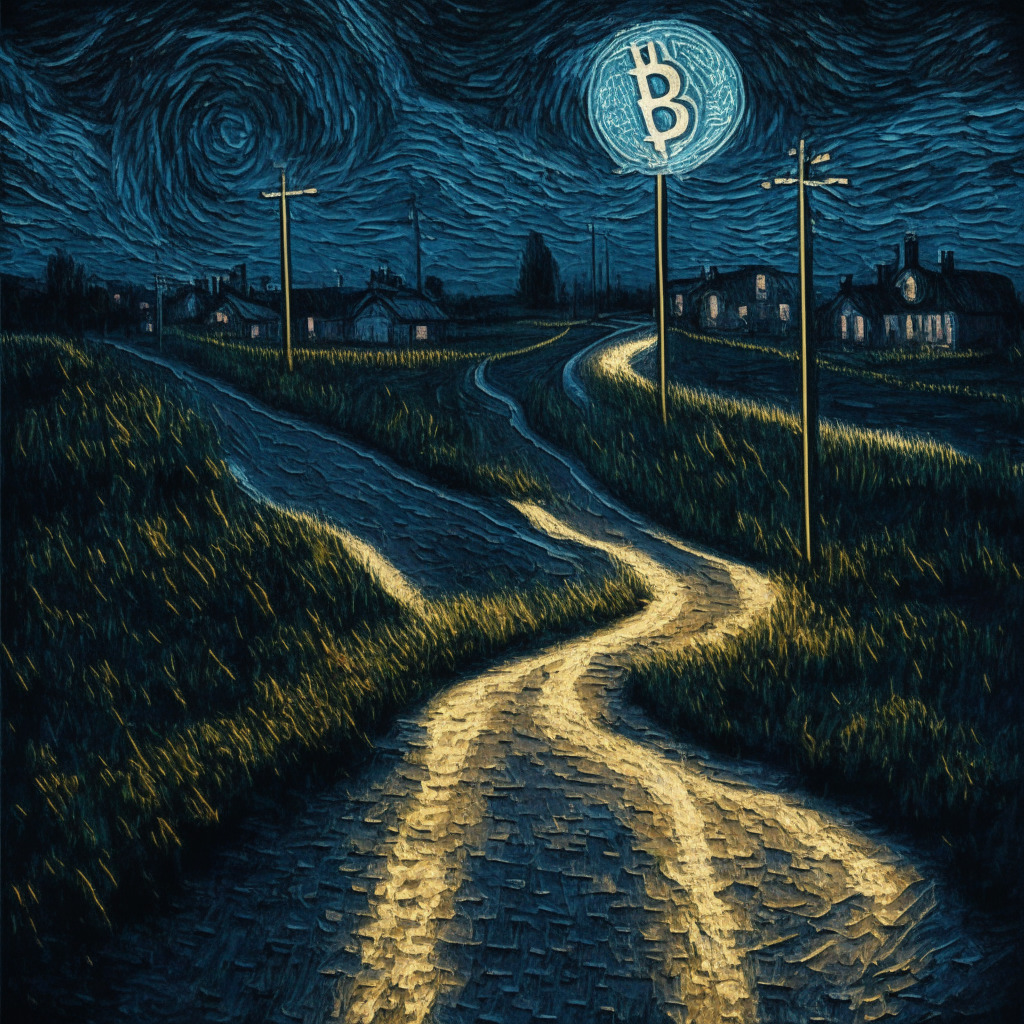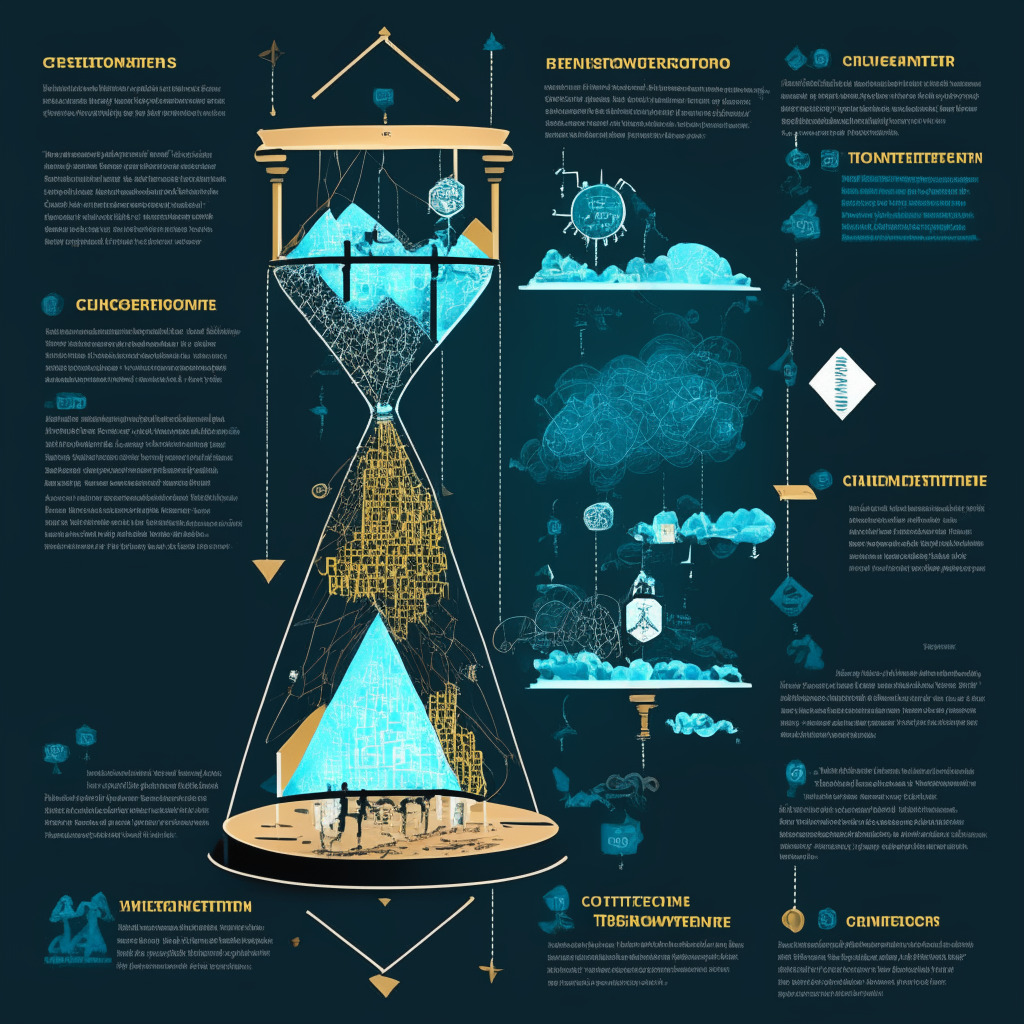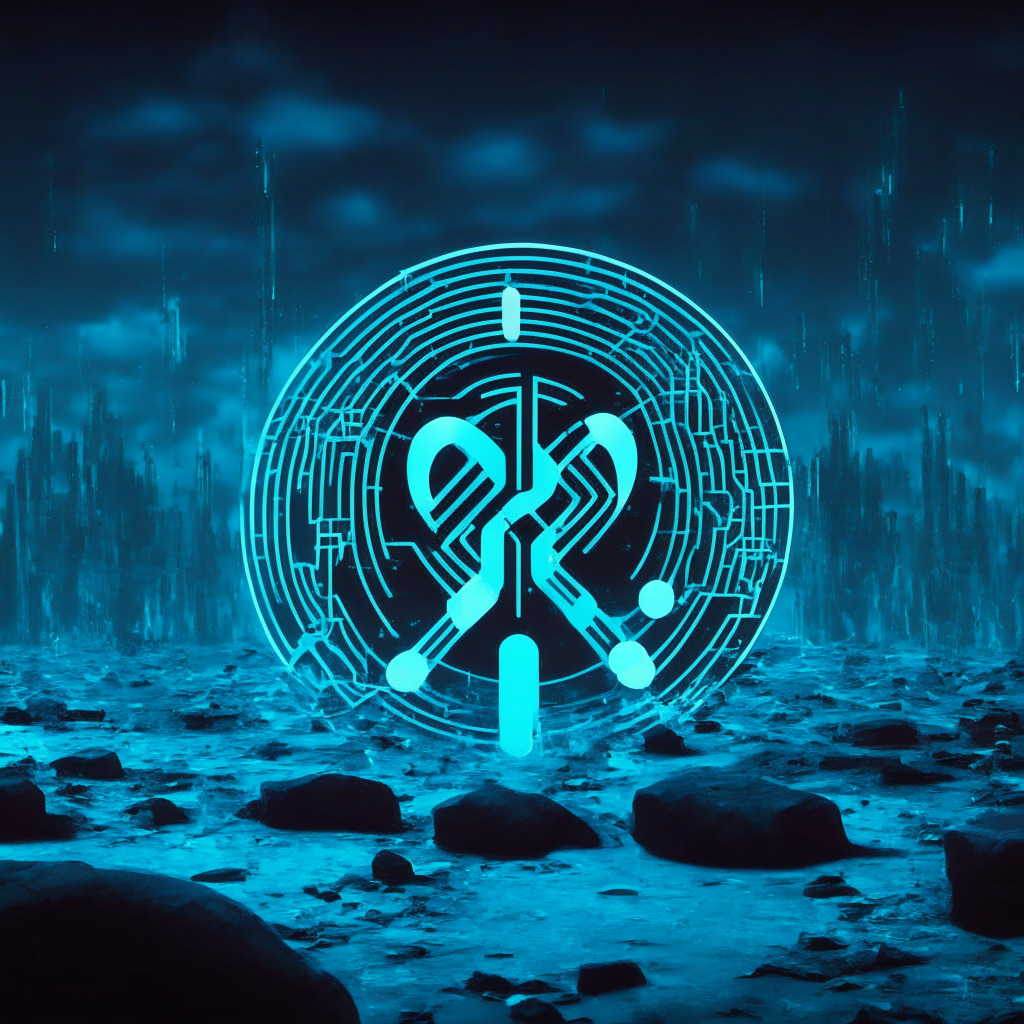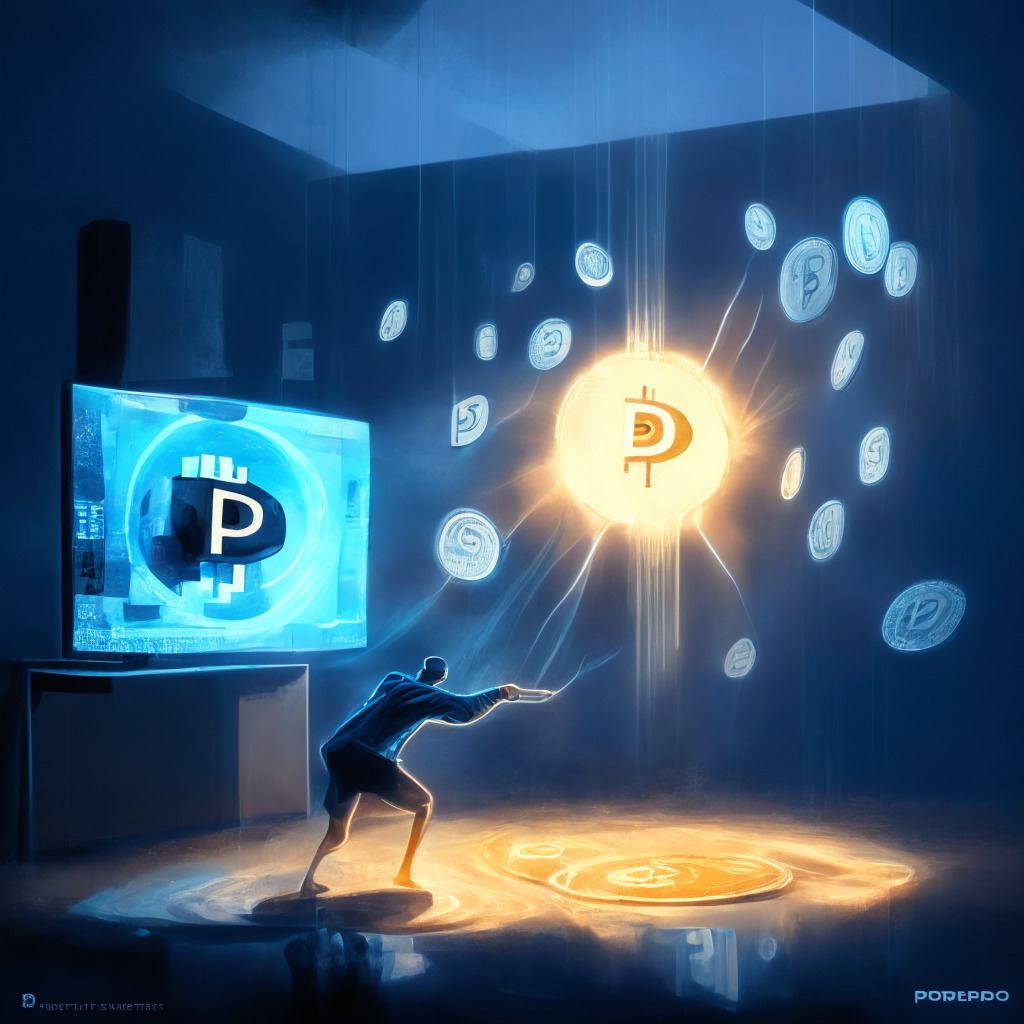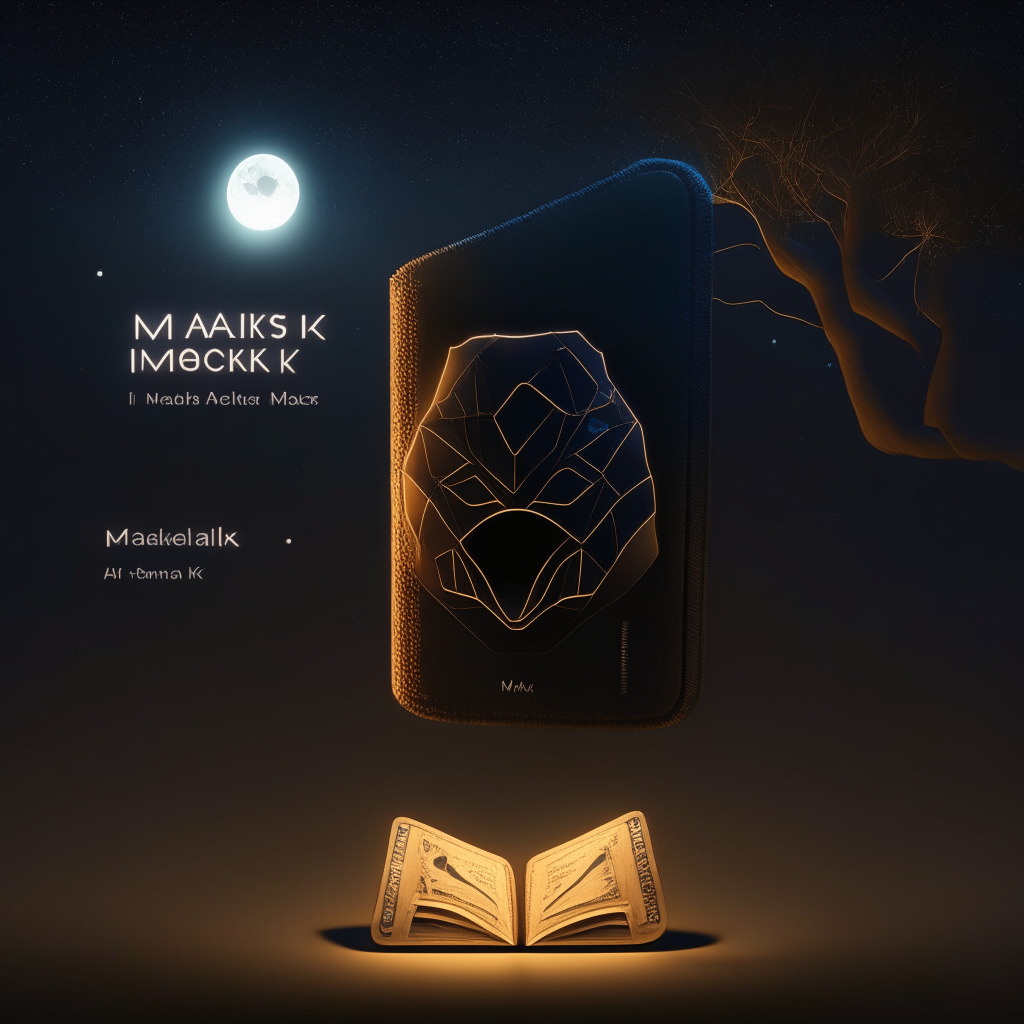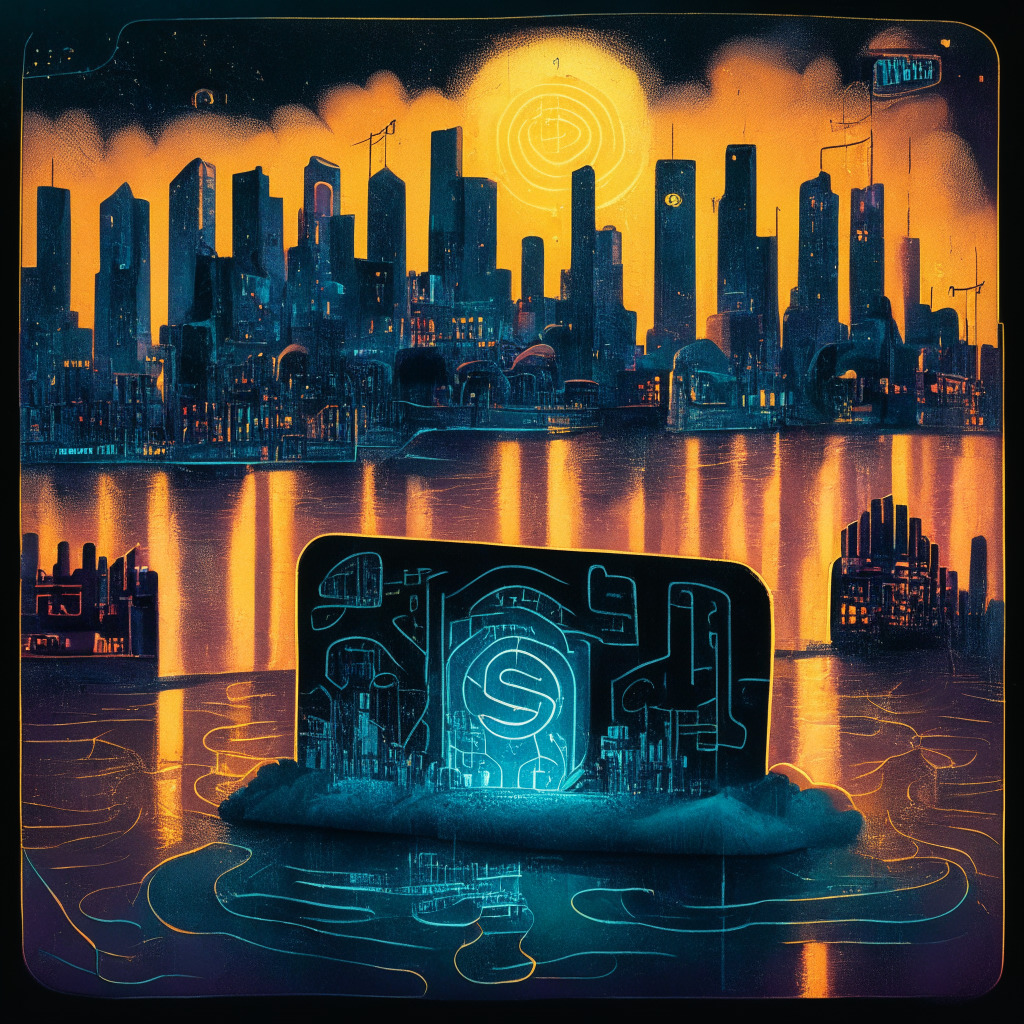Messaging app, Telegram integrates a crypto wallet, available to its 800 million global users, potentially positioning it as a mainstream blockchain platform. Simultaneously, crypto exchange Coinbase integrates Bitcoin’s layer 2 payment protocol, Lightning Network, promising faster transactions. Despite apparent benefits, the integration process and exclusions pose potential drawbacks.
Category: Technology
Coinbase and Binance Embrace Bitcoin Lightning Network: A Boon or a Bane?
Coinbase, a major cryptocurrency exchange, has confirmed plans to incorporate the Bitcoin Lightning Network (LN), aiming to solve Bitcoin’s scalability problems. This decision, which surprised some industry bigwigs, signifies a commitment to enhancing transaction speed and reducing fees for Bitcoin, the largest cryptocurrency. Moreover, concerns were raised about misleading metrics often used to gauge a cryptocurrency’s health.
Telegram’s Intertwined Saga with TON: Scandal, Redemption, and a Future in Balance
“Telegram has extended support for the TON network, boosting its token price by 7%. Once abandoned amid legal issues with the U.S. Securities and Exchange Commission, the TON blockchain was redeemed by community members who formed the TON Foundation.”
Navigating Time in Web3: Panerai’s NFT-based Digital Passport for Authenticity Verification
“Panerai has introduced an NFT-based ‘digital passport’, a record of every watch sale that streamlines the identification and verification process of the timepieces. Developed in partnership with Arianee, a Web3 solutions provider, it offers detailed information and tangible proof of authenticity.”
Phantom Wallets: Unmasking the Misleading User Count in Crypto Ecosystems
Active user count in blockchain technology may be misleading, as a small group can manipulate activity across multiple wallets, implying false user diversity. This ability to operate multiple wallets, while being used also for legitimate reasons, can inflate a project’s active user numbers potentially misleading investors.
Digital Yuan: China’s Leap Into Blockchain Salary Payments and Its Global Implications
A growing number of Chinese companies are switching to digital yuan for salary payments. The Zhongkai High-tech Industrial Development Zone, in partnership with the ICBC, has become the first city company to pay its employees, including CCP officials, in digital yuan. This initiative encourages digital yuan adoption and broadens its application in the public sector, helping to tackle the longstanding US dollar dominance.
Standard Chartered’s Zodia Custody Joins Forces with Polkadot: A Risky Move or an Untapped Opportunity?
“Zodia Custody, a Standard Chartered spin-off, has partnered with Parity Technologies, the developer of the Polkadot blockchain. The collaboration aims to strengthen the Polkadot ecosystem with institutional backing, extending the integration of financial institutions into the blockchain network through securing digital assets.”
Navigating the Future of Finance: Analyzing Project Sela’s Digital Currency Triumphs and Trials
“Israel and Hong Kong have completed their retail central bank digital currency (rCBDC) test runs, focusing on private participation, inclusivity, and security. Project Sela merges cash characteristics with digitization benefits, addressing policy, security, technology, and legal issues. However, real-time gross settlement (RTGS) system limitations and developmental challenges remain.”
When AI Meets Blockchain: Exploring the Emergence of AI Cryptos like SingularityNET, Ocean Protocol, and yPredict
“Artificial intelligence (AI) and cryptocurrencies come together in AI crypto tokens, fueling AI platforms supported by blockchain. Examples include SingularityNET’s AI marketplace, Ocean Protocol’s data trading service, and yPredict’s AI-driven crypto analysis ecosystem. These AI crypto projects represent the innovative intersection of two revolutionary technologies.”
Pros and Cons of Vitalik Buterin’s “Privacy Pools”: Balancing Blockchain Transparency and Anonymity
“Vitalik Buterin co-authored a paper exploring a potential solution to the inherent privacy leak in blockchain, balancing privacy and compliance. The proposed synthesis of zero-knowledge proofs with “Privacy Pools” attempts to obscure crypto users’ blockchain history without associating with illicit activities. Critics, however, question this method’s legal and practical efficacy.”
Exorbitant Bitcoin Transaction Fees: A Costly Mistake or a Deep-Seated Flaw?
A $200 Bitcoin transaction incurred a whopping fee of nearly $500,000, sparking a debate among crypto enthusiasts. Some hypothesize a money laundering plot, but others believe a faulty digital payment platform may be to blame. This incident highlights the pressing need for secure, efficient transaction processing to avoid such costly blunders in the future.
Rethinking Blockchain Terminology: From ‘Data Availability’ to ‘Data Publishing’ – A Paradigm Shift?
Understanding blockchain terminology like ‘data availability’ can be complex. Dankrad Feist from the Ethereum Foundation suggests a shift in name to ‘data publishing’ to simplify the concept. This opens a discussion on terminologies’ balance between simplicity and accuracy.
Coinbase’s Web3 Wallet: Bridging Institutions with On-chain Applications, But Is It Enough?
“Crypto giant Coinbase inaugurates a Web3 wallet primarily focused on aiding institutions to venture into NFTs and other aspects of decentralized finance. The wallet, under the Coinbase Prime division, offers a gateway to crypto, NFTs, decentralized apps, and a broader DeFi spectrum, while ensuring the safety and security of client’s assets.”
Breaking Down the Solflare-MetaMask Integration: A Solana Game-changer or a Usability Roadblock?
Solflare, a notable Solana wallet provider, integrates with MetaMask Snaps to eliminate barriers for potential Solana ecosystem users. This integration enables MetaMask users to manage their Solana portfolios directly through the popular crypto wallet. This may significantly increase Solana’s user base. However, access still requires Solana-specific wallets like Solflare, which could deter potential users.
Deciphering Ripple’s Future: Centralization vs Decentralization Debate in Blockchain Technology
Ripple Labs’ digital currency, XRP, has a chance to redefine its closed structure following a recent US judge ruling that XRP wasn’t a security when sold to public. Ripple stands to gain economically from building an effective ecosystem, potentially transitioning from centralized to decentralized autonomous organizations. Greater decentralization may also aid in navigating partnerships with traditional entities.
HSBC’s Dance with Blockchain: Innovating Between Crypto Excitement and Regulatory Clouds
HSBC, the global financial powerhouse, is reportedly partnering with crypto custody technology firm, Fireblocks, known for its safekeeping tech like multi-party computation (MPC). Despite regulatory ambiguity around digital assets, HSBC showcases a progressive crypto approach, allowing customers to trade digital currencies like Bitcoin and Ethereum through exchange-traded funds or ETFs.
PayPal’s Crypto Integration and Binance’s Noble Deed: A Deep Dive into Pros, Cons & Verifiable Progress
“PayPal’s new feature allows U.S. users to convert cryptocurrencies to USD. However, this poses questions due to transaction costs, potential incompatibility with MetaMask, and Bitcoin transactions. Meanwhile, Binance’s generous disaster relief pledge raises issues regarding beneficiary verification.”
El Salvador’s Bitcoin Revolution: Path to Financial Freedom or Premature Jump to a Utopian Future?
“El Salvador, embracing Bitcoin as an alternative to traditional money, exemplifies growing trust in decentralized finance. Key contributors like Mi Primer Bitcoin aim to foster this trust through education. However, as we move towards this new future, skepticism remains over the hypothesized collapse of traditional financial systems.”
PayPal’s PYUSD Stablecoin: Shining Beacon or Misstep in Crypto Space?
“PayPal’s proprietary stablecoin, PYUSD, is criticized due to concerns over centralization and potential vulnerability flaws. Its code could pose adoption hindrances and potentially wipe out balances. The crypto community sees PYUSD as a setback, contrasting the ethos of cryptocurrency.”
MetaMask Snaps: A Revolutionary Leap or a Ticking Security Timebomb?
“Consensys, the creator of the MetaMask crypto wallet, has launched ‘MetaMask Snaps’ – add-on customisations developed by third-party experts. This allows MetaMask to transition from a simple crypto wallet to an ecosystem of interconnected services, offering enhanced transaction insights, seamless interaction with non-EVM blockchains, and decentralized application notifications.”
PayPal Broadens Crypto Horizons: USD Conversion Service Unveiled. Strides or Stumbles?
“PayPal has introduced a service allowing users to convert their digital currencies into US dollars. This ‘off-ramp service’ enables cryptocurrency wallet users to transition into USD for various uses. The service extends to decentralized applications and non-fungible token marketplaces. The collaboration with MetaMask plays an important role in this expansion.”
Manta Network’s Leap Forward: Gains and Regulatory Risks in Layer 2 Solutions
“Manta Network has launched its zero-knowledge proof layer 2 scaling network, an innovative platform for ZK-enabled DApp development. This introduces increased throughput and reduced gas fees, promising future DApps realm expansion. However, challenges and regulatory issues, as highlighted by the Celsius incident, suggest the need for careful navigation in blockchain tech.”
Unveiling Lukso’s Universal Profiles: A Revolution in Blockchain Identity and Accessibility
“Lukso, a layer 1 blockchain, is launching the beta version of “Universal Profiles,” an “on-chain identity” integrated with a recoverable crypto wallet. This feature has various applications like NFTs, decentralized social media, and payments. Universal Profiles also resolves common recovery difficulties associated with standard blockchain accounts. Furthermore, it transcends boundaries in sharing information with other decentralized applications.”
AI Partnerships: Unveiling the U.S.-Vietnam Collaborations-Skeletons or Springboards?
U.S. and Vietnam solidify ties through business partnerships focused on AI technologies, cloud computing and semiconductors. Industry giants like Google, Intel, Microsoft, and Nvidia support this initiative, signaling Vietnam’s shift from economic centralization to a more open approach.
Unpacking AI’s Fortitude: A Deep Dive into its Revolutionizing Impact on Supply Chains and Logistics
“AI’s impact on supply chains has seen companies increasingly leveraging AI for efficiency and to address transportation complexities. AI predictive analytics assists in demand forecasting, optimizing inventory and reducing excess stock. Further, AI aids in real-time quality control and streamlining procurement processes in supply chains, enhancing customer experience and improving transportation management.”
Mocaverse Funding Boosts Blockchain Evolution: Promise or Peril in Web3 Gaming?
Animoca Brands, a forefront player in the evolving blockchain technology sector, recently raised $20 million for their Web3 identity project, Mocaverse. This funding aims to advance Mocaverse by directing more resources towards product development, Web3 adoption, and building new alliances. However, there exist concerns about the project’s execution, data privacy and the balance between expansion and sustainability.
Baltic Honeybadger: A Beacon for Privacy Advocates in the Age of Central Bank Digital Currencies
“The Riga-based cypherpunk reunion, the Baltic Honeybadger, focused on the importance of privacy, resistance against Central Bank Digital Currencies, and the Lightning Network. The event promoted deep, privacy-focused discussions while also featuring live Bitcoin games and participative fundraisers via the Lightning Network.”
Transforming Bitcoin into a Global Payment Network: Possibilities and Challenges
Former PayPal President, David Marcus, who is also the CEO of Lightning Network Infrastructure firm, Lightspark, is transforming Bitcoin into a global payment network. He aims to adapt the Lightning Network into a unique protocol for online financial transfers, with the potential to change how currencies such as Dollars, Yen, or Euros move across the globe. However, technical complexities and development challenges exist within the Bitcoin Lightning Network.
Dissecting Project Sela: Orchestrating the Safe Future of Central Bank Digital Currencies
“Project Sela showcases the potential of central bank digital currencies (CBDCs), implementing a novel intermediary approach to reduce liquidity risk. Dealing with concerns about cybersecurity and privacy, it signals a future where transactions settle directly on the central bank’s ledger, inspiring global central banks’ digital transformation.”
Revolutionizing Crypto Transactions: Can USDC be the Ultimate Gas Token on Any Blockchain?
Qredo, a crypto safekeeping firm, has partnered to allow its non-custodial wallet to integrate the popular USDC stablecoin. This could simplify the gas fee equation by transforming USDC into the gas token on any blockchain, influencing how crypto enthusiasts perceive USDC in the decentralized applications and protocols sphere.
Deciphering China’s Crypto Future: A Step Beyond USD Dependence?
Chinese scholar, Huang Qicai, suggests digital currencies could stimulate a global transition from USD dependence, potentially leading to a “world currency multi-polarization”. Key nations like China, Russia and Brazil are making significant strides in digital currencies, hinting at a potential change in global monetary governance.
Exploring the Metaverse Divide: East Booms while the West Wanes?
Sandbox co-founder Sebastien Borget emphasizes the booming metaverse market in Asia, despite seeming decline in the West. He is set to launch Lion City, a virtual neighborhood in the Sandbox metaverse, hinting potential geographical shift in metaverse utilization. This article also introduces the dynamic NFTs developed by Apple, possibly tipping the metaverse industry balance.

